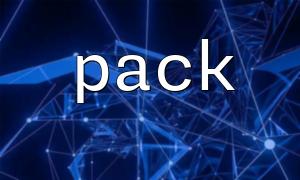When processing binary data in PHP, two commonly used methods are to use the built-in pack() function and manually splicing strings (using string operations to combine binary data). Many developers will wonder in actual development: Is the execution efficiency of pack() really higher than manual splicing? This article will use code tests and combine some simple performance tests to help everyone clarify this problem.
pack() is a built-in PHP function that is used to package data into binary strings in the specified format. The format parameters are flexible and direct.
Manual splicing is to manually construct binary data using string functions (such as chr() , bit operations, etc.).
Both can achieve similar effects in terms of function, but the implementation method is different from the underlying processing.
We will test the time overhead of two methods when packaging large amounts of data. The specific example is to package a large number of 32-bit unsigned integers as an example. The tests are divided into:
Pack a single integer using pack('N', $num) .
Use chr() to combine bit operations to manually splice four bytes.
The codes are all executed 1 million times in a loop, recording the time difference.
<?php
$iterations = 1000000;
$numbers = range(0, $iterations - 1);
// test pack() Pack
$startPack = microtime(true);
$resultPack = '';
foreach ($numbers as $num) {
$resultPack .= pack('N', $num);
}
$endPack = microtime(true);
$timePack = $endPack - $startPack;
// test手动拼接
$startManual = microtime(true);
$resultManual = '';
foreach ($numbers as $num) {
$resultManual .= chr(($num >> 24) & 0xFF);
$resultManual .= chr(($num >> 16) & 0xFF);
$resultManual .= chr(($num >> 8) & 0xFF);
$resultManual .= chr($num & 0xFF);
}
$endManual = microtime(true);
$timeManual = $endManual - $startManual;
// Output result
echo "<code>pack() Methods take time: {$timePack} Second\n</code>";
echo "<code>手动拼接Methods take time: {$timeManual} Second\n</code>";
?>
In multiple tests, you will usually find:
Pack() executes slightly faster , especially when dealing with complex formats and large batches of data.
Manual stitching is slightly less efficient due to multiple string concatenation and bit operations.
But the gap between the two will not be particularly huge, and the manual splicing code is relatively lengthy and prone to errors.
pack() is the underlying function implemented in C language. Memory and CPU optimization during execution are more efficient than string operations at the PHP level. Although manual stitching is intuitive, every time you connect the string, a new copy of the string will be generated (PHP string immutable feature), resulting in performance degradation.
It is recommended to use pack() , which has concise code, high readability, and has advantages in performance.
Manual stitching is only considered when extreme performance tuning and very meticulous control of the underlying bytes.















